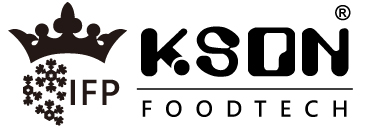Frisbee European Project
FRISBEE - Food Refrigeration Innovations for Safety, Consumers’ Benefit, Environmental Impact and Energy Optimization Along the Cold Chain in Europe
-
Frisbee project
- The Frisbee project is a European Union funded 4-year Project to provide new tools, concepts and solutions for improving refrigeration technologies along the European food cold chain.
- The objective of the FRISBEE (Food Refrigeration Innovations for Safety, consumers’ Benefit, Environmental impact and Energy optimisation along the cold chain in Europe) project is to provide new tools, concepts and solutions for improving refrigeration technologies along the European food cold chain. At all stages the needs of consumer and European industry will be considered.
- The project will develop new innovative mathematical modelling tools that combine food quality and safety together with energy, environmental and economic aspects to predict and control food quality and safety in the cold chain.
-
Review; Chilling, Superchilling, Supercooling
-
Quality and Safety Models for Superchilled Fish
- Research and development of new and improved methods for chilling have resulted in the concept of superchilling. Literature reports several names to describe superchilling, including deep chilling, partial chilling, partial freezing and even supercooling.
-
Superchilling is a conservation method for foods where some of the water in the food product is frozen. The product is then held at a temperature between -0.5 and -4 °C. Previous research on the superchilling method assumed that the ice fraction has significant importance for the superchillin process due to process control and product quality. Recent research however, has concluded that an ice fraction between 5-20 % is acceptable and that an ice fraction of more than 30% will cause higher drip loss in fish products.(Source: http://www.frisbee-project.eu)
-
Quality and Safety Models for Superchilled Fish


